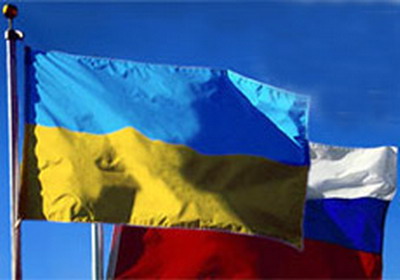Russia, Ukraine stay at loggerheads as EU gas supplies slump
 The sharp escalation in the energy war between Ukraine and Russia led to big cuts in gas supplies across Europe Tuesday amid freezing winter temperatures.
The sharp escalation in the energy war between Ukraine and Russia led to big cuts in gas supplies across Europe Tuesday amid freezing winter temperatures.
The second reduction since January 1 by Russian gas monopolist Gazprom saw shipments cut to just 72 million cubic meters of gas for European consumers, from 260 million on Monday and an average of 300 million previously.
Officials in both Russia and Ukraine confirmed plans to renew talks on ending the conflict in Moscow on Thursday. But the sides remained far apart on a host of issues.
Gazprom deputy chief Alexander Medvedev again lashed out at Kiev, calling on Ukraine to fulfil its responsibilities as a transit nation for gas supplies.
"The situation is serious," Medvedev told a press conference in Berlin following a meeting with top German Government and EU officials.
Medvedev said what while Gazprom was ready to reopen negotiations at any time, Ukraine was not prepared to return to the negotiating table.
EU member states including Bulgaria, the Czech Republic, Romania, Greece, Austria, Hungary and Germany all reported sharp drops in supplies.
Russia meets about a quarter of the EU's natural gas needs with about 80 per cent of supplies flowing through Ukrainian pipelines.
Austria state gas distributor OMV AG said a 90 per cent decrease of Russian supplies to Austria meant that a number of Western and Central European countries further downstream would be affected.
Spokeswoman Michaela Huber confirmed Hungary, Croatia, Slovenia, Italy, Germany and France would receive only 10 per cent of volumes usually supplied by OMV - though OMV was not their sole supplier.
The flow of Russian gas supply was also terminated at the Ukrainian-Romanian border, shutting gas to Bulgaria, Greece and Macedonia, the Bulgarian supplier Bulgargaz said.
Neighbouring Romania reported the main pipeline bringing Russian gas and covering two-thirds of its supply was shut down, while Hungary said it was using reserve supplies after most deliveries were cut.
Turkish Energy Minister Hilmi Guler confirmed the complete cutoff of gas shipped through the Balkans.
In Prague, the Czech gas importer RWE Transgas said the flow of Russian gas dropped by 75 per cent. If average nationwide temperatures fall below minus 5 degrees centigrade, alternative gas sources would last for "weeks" only, RWE Transgas executive Jan Nehoda said.
Ukraine completely shut off supplies to Hungary during the afternoon, Energy Minister Csaba Molnar said, warning that from Wednesday power stations would have to switch to alternative sources and further restrictions on industrial gas use might be needed.
There were similar warnings in Serbia, where supplies were also completely stopped as of Tuesday afternoon, Dusan Bajatovic, head of Serbia's gas company Srbijagas said.
The European Union - which had previously remained aloof from what it called an inter-company dispute - condemned as "completely unacceptable" Russia's latest cut-off of gas to EU members.
The Czech government, current holder of the EU's rotating presidency, and the European Commission demanded "that gas supplies be restored immediately to the EU and that the two parties resume negotiations at once," a joint statement said.
Czech Prime Minister Mirek Topolanek was less diplomatic, telling reporters in Prague "Other countries should not be held hostage - this is a message for both sides."
Meanwhile Austrian Economics Minister Reinhold Mitterlehner proposed that the EU grant Ukraine credits and liabilities to enable it to pay off its gas debt to Russia.
"If the crisis continues, the EU has to think about helping Ukraine with credits and by assuming liabilities," Mitterlehner said, while stressing that the EU would not take over Ukraine's debts.
However, a ministry spokesperson said that this was just one proposal and that the Czech Republic, which currently holds the EU presidency, would coordinate Union policy.
Gazprom had already fully cut deliveries of gas intended for Ukranian customers after talks on non-payments by Kiev and gas pricing for 2009 expired on New Year's Eve.
Gazprom chief executive Alexei Miller said Kiev's debt would soon amount to billions of dollars if the deadlock continues. Gazprom claims an outstanding 614 million dollars for late payments on 2008 supplies.
Ukrainian officials were quick to reject the Russian claims, saying they had paid Russia in full for all gas used through the end of 2008, and that Russian cut-offs in early
2009 were punitive.
The current conflict came to a head at the end of 2008 with the expiration of the Russo-Ukrainian contracts for gas shipments. Ukraine rejected a price increase to 250 dollars - from 179.50 dollars - per 1,000 cubic meters on Russian gas.
Gazprom cut the taps to Ukraine in retaliation, and raised its asking price to 450 dollars. Ukraine countered with a demand the price of shipping gas paid by Russia to Ukraine be hiked from 1.6 to 2 dollars per 1,000 cubic metres, an offer rejected outright by the Russians.
European customers pay a higher price to Gazprom than Ukraine, but industry analysts say Kiev's unwillingness to agree on a current market price is grounded on widespread industry expectations the price of natural gas will fall sharply in coming months, following the slump in global oil prices.
Moscow's relations with Ukraine have grown increasingly acrimonious over moves by Kiev's pro-Western leadership to join NATO and its support for Georgia during its war with Russia in August. (dpa)